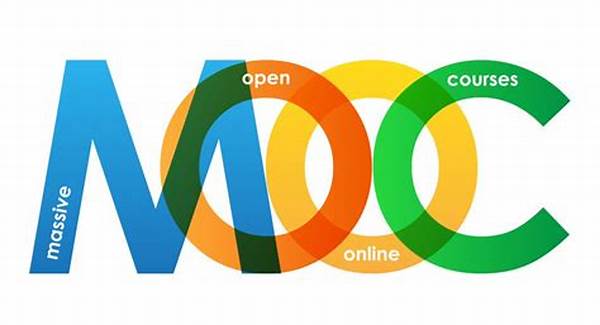The Future of MOOCs: Massive Open Online Courses
Read More : Tambakbet Reviews Bootcamps That Guarantee Job Placements
In the realm of education, MOOCs, or Massive Open Online Courses, have steadily risen as game-changers in the way we perceive learning. These platforms have transcended traditional learning boundaries, enabling individuals from all corners of the globe to engage with a plethora of courses. Imagine attending lectures from top-notch universities without the exorbitant fees or geographic restrictions! They’re not just about affordability; they’re about accessibility and opportunity. With the potential to revolutionize education, the future of MOOCs is a topic that excites educators, tech enthusiasts, and learners alike.
MOOCs have come a long way since their inception, embodying the democratization of knowledge. They cater to diverse interests, from ancient history enthusiasts to burgeoning AI developers. As we gaze into the future of MOOCs, it’s crucial to reflect on their current impact and anticipate the innovations on the horizon. The future promises enhancements in course interactivity, collaborative projects, and personalized learning experiences that cater specifically to individual learner needs. But what makes something that started as a simple concept evolve into a beacon of future learning paradigms?
The Exciting Prospects of MOOCs
From a salesperson’s perspective, MOOCs are the ultimate product—dynamic, flexible, and meeting an ever-growing demand for continuous learning. While traditional education systems grapple with rising costs and rigid structures, MOOCs provide a sanctuary of sorts. They offer courses tailored to personal growth, career advancement, and intellectual curiosity. Imagine logging in and diving into a world where your only limit is how much time you have in a day!
The next frontier for MOOCs is likely to integrate advanced technologies. How about AI tutors who can critique your assignments or VR-simulated labs for science experiments? These advancements hold the potential to elevate online learning from passive to utterly immersive. This future is not merely a dream; it’s an inevitable outcome of ongoing research and development in the ed-tech sphere. With such potential, the question isn’t whether MOOCs will play a central role in future education, but rather how expansive that role will be.
—
Engaging the Next Wave of Learners
Massive Open Online Courses have reshaped the landscape of education in unprecedented ways. The pandemic years were a testament to their resilience and adaptability. Schools and colleges leaned heavily on these platforms to ensure continuity in learning, prompting thousands to appreciate the flexible nature of MOOCs.
But why do people still tune into these courses? The answer is simple: MOOCs combine the allure of high-quality content with convenient accessibility. For many, it’s the perfect blend—imagine sipping coffee in your pajamas while attending an Ivy League lecture. This is the vision of future education—a borderless, constraint-free approach to learning.
By 2030, it’s predicted that half the world’s student population might engage with MOOCs. This projection is not just based on current trends but is corroborated by the continuous investment in online infrastructure and technologies. Analysts predict that as connectivity improves globally, so will the reach and impact of MOOCs. Thus, the future of MOOCs is not an abstract concept but a tangible reality approaching us at breakneck speed.
The Evolution and Impact of Online Learning Platforms
As the influence of MOOCs grows, so too does the public’s perception and trust. The average learner is now more tech-savvy and open to new modes of information consumption. This presents a perfect storm for the expansion of online learning platforms. The future of MOOCs signifies a promise—a promise of education for all, regardless of socioeconomic backgrounds or geographical limitations.
Reporting from multiple sources, such as the latest interviews with educational policymakers, the future of MOOCs holds exciting possibilities. There’s talk of integrating global accreditation systems, giving learners worldwide a standardized measure to evaluate their competencies. This development could be the final push MOOCs need to become the de facto standard in global education.
—
Topical Insights into the Future of MOOCs
Crafting a Toolkit for Lifelong Learning
In an age where information is paramount and skills rapidly evolve, lifelong learning has transitioned from being a luxury to a necessity. MOOCs are at the forefront of facilitating this change. The future of MOOCs promises to include functionalities that can track skill acquisition in real time, providing learners with a clear picture of their progress and areas needing improvement. This achievement might be the most significant shift in how societal values education.
Consider testimonials from real users: Maria from Spain improved her English communication skills, and John from Kenya advanced his programming knowledge. Such stories encapsulate the power of MOOCs. They highlight the fact that, in the future, education will not only be about acquiring knowledge but also about building a global community of learners.
Ultimately, the trajectory of MOOCs is shaped by a continuous feedback loop between technology, learner engagement, and educational trends. Their evolution mirrors societal changes, adapting to the dynamic world of work and learning. And as this evolution continues, its benefits to global learning and development will be immense and far-reaching.
—Topics of Interest Related to the Future of MOOCs
Analyzing the Shifting Educational Landscape
The education sector is undergoing a transformative shift, with digital courses and online platforms leading the revolution. The future of MOOCs isn’t just assured; it’s vibrant and full of promise. Comprising a plethora of subjects, MOOCs have become more than just a convenient alternative; they are a staple of modern education.
As we examine this transformation, the question remains: What makes MOOCs such a compelling choice? It turns out their future success lies not only in the breadth of topics offered but also in the community and network they foster. These platforms encourage interactions, discussions, and feedback among a diverse group of learners. With each course, a virtual classroom comes to life, uniting people from disparate backgrounds with shared goals.
Looking forward, the integration of MOOCs into conventional academic structures will be a critical area of interest. The absorption process will likely be gradual yet steady, signifying a deep understanding of their importance in the educational arena. As the pioneers in this field, are MOOCs ready to take on the challenge of leading the world into a new chapter of learning?
The Future: Personalized and Interactive Learning
In a world where digital transformation is inevitable, MOOCs stand at the forefront, fostering educational opportunities for all. As we dive deeper into this innovative future, one thing is clear: the world of learning will never be the same again. Embracing technological advancements and innovative pedagogies, the future of MOOCs promises adaptability, accessibility, and an enriched learning experience.
As Maria and John’s testimonials underscore, the potential is enormous. Whether it’s learning a new language or mastering an intricate subject like quantum computing, MOOCs have successfully brought the classrooms into our homes. And as the digital age surges forward, the lessons learned from this transition will position MOOCs as versatile tools for knowledge dissemination and skill acquisition.
All in all, the future of MOOCs signifies a world connected by learning—a global classroom enriched by technology and fueled by the universal desire for knowledge.


